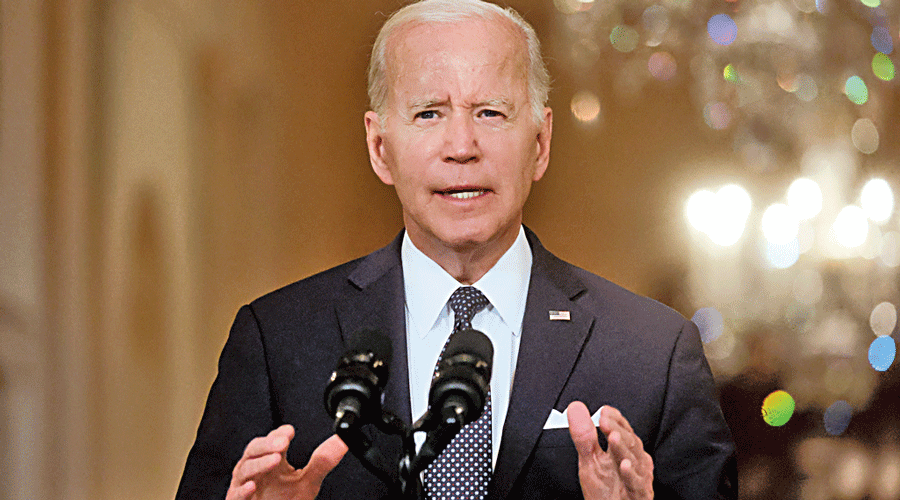The Senate passed legislation on Sunday that would make the most significant federal investment in US history to counter climate change and lower the cost of prescription drugs, as Democrats banded together to push through major pieces of President Biden’s domestic agenda over unified Republican opposition.
The measure, large elements of which appeared dead just weeks ago amid Democratic divisions, would inject more than $370 billion into climate and energy programmes. Altogether, the bill could allow the US to cut greenhouse gas emissions by about 40 per cent below 2005 levels by the end of the decade.
It would achieve Democrats’ longstanding goal of slashing prescription drug costs by allowing Medicare for the first time to negotiate the prices of medicines directly and capping the amount that recipients pay out of pocket for drugs each year at $2,000. The measure also would extend larger premium subsidies for health coverage for low- and middle-income people under the Affordable Care Act for three years.
And it would be paid for by substantial tax increases, mostly on large corporations, including establishing a 15 per cent corporate minimum tax and imposing a new tax on company stock buybacks.
Initially pitched as “Build Back Better”, a multi-trillion-dollar, cradle-to-grave social safety net plan on the order of the Great Society, Democrats scaled back the legislation in recent months and rebranded it as the Inflation Reduction Act. It was projected to lower the federal deficit by as much as $300 billion over a decade, though it remained to be seen whether it would counter inflation or lower costs for Americans in the long term.
Passage of the measure was a major victory for Biden and Democrats, who are battling to maintain their slimHouse and Senate majorities in November’s midterm congressional elections. Facing unanimous opposition by Republicans, who have used filibusters to block many elements of their domestic agenda, Democrats took full advantage of the Senate’s special budget rules to force through as much of it as they could with the support of all 50 members of their caucus.
The final tally was 51 to 50, with Vice President KamalaHarris casting the tie-breaking vote. The House planned to interrupt its summer break to reconvene briefly on Friday to clear the measure, sending it to Biden for his signature.
“Today, Senate Democrats sided with American families over special interests, voting to lower the cost of prescription drugs, health insurance, and everyday energy costs to reduce the deficit, while making the wealthiest corporations finally pay their fair share,” Biden said.
The Senate vote was the culmination of more than a year of hard-fought negotiations between the party’s progressive core, which demanded a plan that would touch every aspect of American life, and a conservative-leaning flank that sought a much narrower package.
New York Times News Service










